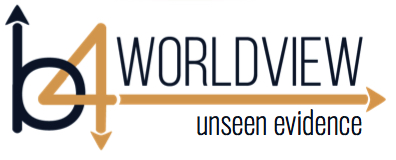
Key Thought for this session:
“Faith is the evidence I cannot observe for the truth that I must act on.”
Many people argue that faith and knowledge are mutually exclusive... and on two opposite ends of a continuum. As we have seen, this is a fallacy or misconception. This assumption means you would find truth about an object by gaining more and more eido knowledge until you observe enough that you can trust the inferences you make about the object. With this assumption about truth, you would only need faith when or because you do not have enough facts. For this worldview of faith and knowledge, faith is often considered a weakness that depends on getting enough observable knowledge to know what is right or true. In practice, this worldview generally discounts gnosis knowledge and limits the view of knowledge to just one type - eido knowledge. Remember, eido knowledge is where all evidence comes to us by some form of scientific inquiry based on what we can observe with our physical senses or measuring instruments. While this worldview on knowledge and faith would rarely say that gnosis knowledge doesn’t exist, it would never see gnosis knowledge as something we could trust or depend on for truth.
This worldview of knowledge, truth, and faith is among the most common views of Philosophy. While philosophers have failed to agree on their theories of truth, many of them do have one thing in common: they tend to believe that there is a limited, if any, role for faith. Faith is the evidence not seen, which involves accepting something philosophers call “abstract” for what is true. While science provides observable evidence of fact for eido knowledge, faith is the evidence we get from having gnosis knowledge. To eliminate unseen knowledge, such as knowledge revealed to us or a conscience that connects our soul to our mind, or intuition, philosophers tend to define truth about an unobservable abstract concept within the context of what we “eido” know about the concept. Here are a couple of examples of theories of Truth from classical Philosophy.
A belief is true if and only if it corresponds to a fact.
Truth is what is verifiable.
In each theory, fact and verifiable are further explained to mean anything we can observe in the physical world. Earlier in the course we discussed a model that identified two of the three aspects of life as “unobservable.” Remember, we said the soul was the part of our self that could not be seen though a doctor’s physical exam. We said that the soul is connected to our Spirit, which is our connection to the invisible world. But, some theories of truth limit some worldviews of truth and exclude truth where knowledge is not observable. In philosophy, we can only understand the unseen world when we associate it with the seen world.